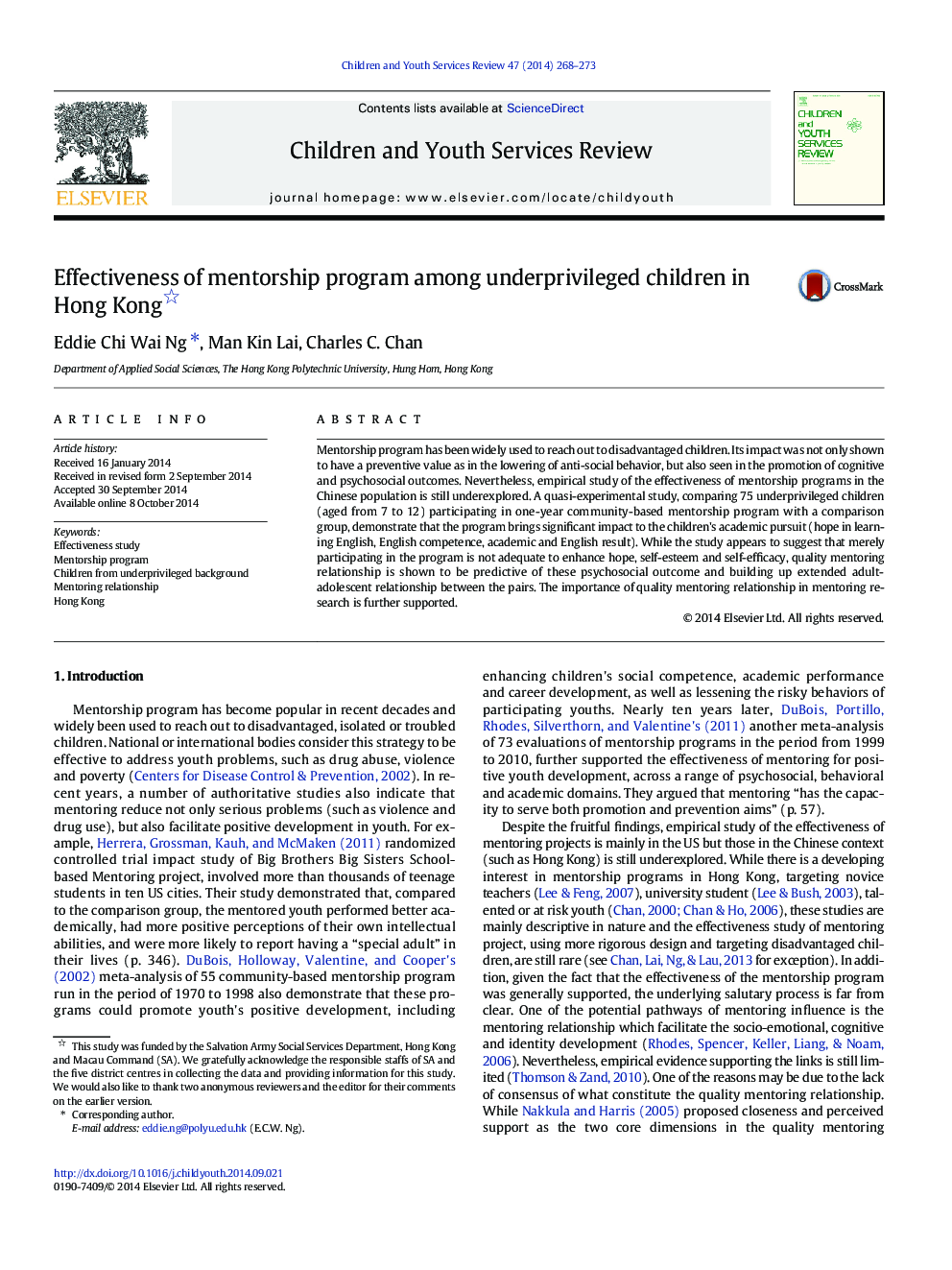| Article ID | Journal | Published Year | Pages | File Type |
|---|---|---|---|---|
| 10311532 | Children and Youth Services Review | 2014 | 6 Pages |
Abstract
Mentorship program has been widely used to reach out to disadvantaged children. Its impact was not only shown to have a preventive value as in the lowering of anti-social behavior, but also seen in the promotion of cognitive and psychosocial outcomes. Nevertheless, empirical study of the effectiveness of mentorship programs in the Chinese population is still underexplored. A quasi-experimental study, comparing 75 underprivileged children (aged from 7 to 12) participating in one-year community-based mentorship program with a comparison group, demonstrate that the program brings significant impact to the children's academic pursuit (hope in learning English, English competence, academic and English result). While the study appears to suggest that merely participating in the program is not adequate to enhance hope, self-esteem and self-efficacy, quality mentoring relationship is shown to be predictive of these psychosocial outcome and building up extended adult-adolescent relationship between the pairs. The importance of quality mentoring relationship in mentoring research is further supported.
Keywords
Related Topics
Health Sciences
Medicine and Dentistry
Perinatology, Pediatrics and Child Health
Authors
Eddie Chi Wai Ng, Man Kin Lai, Charles C. Chan,
